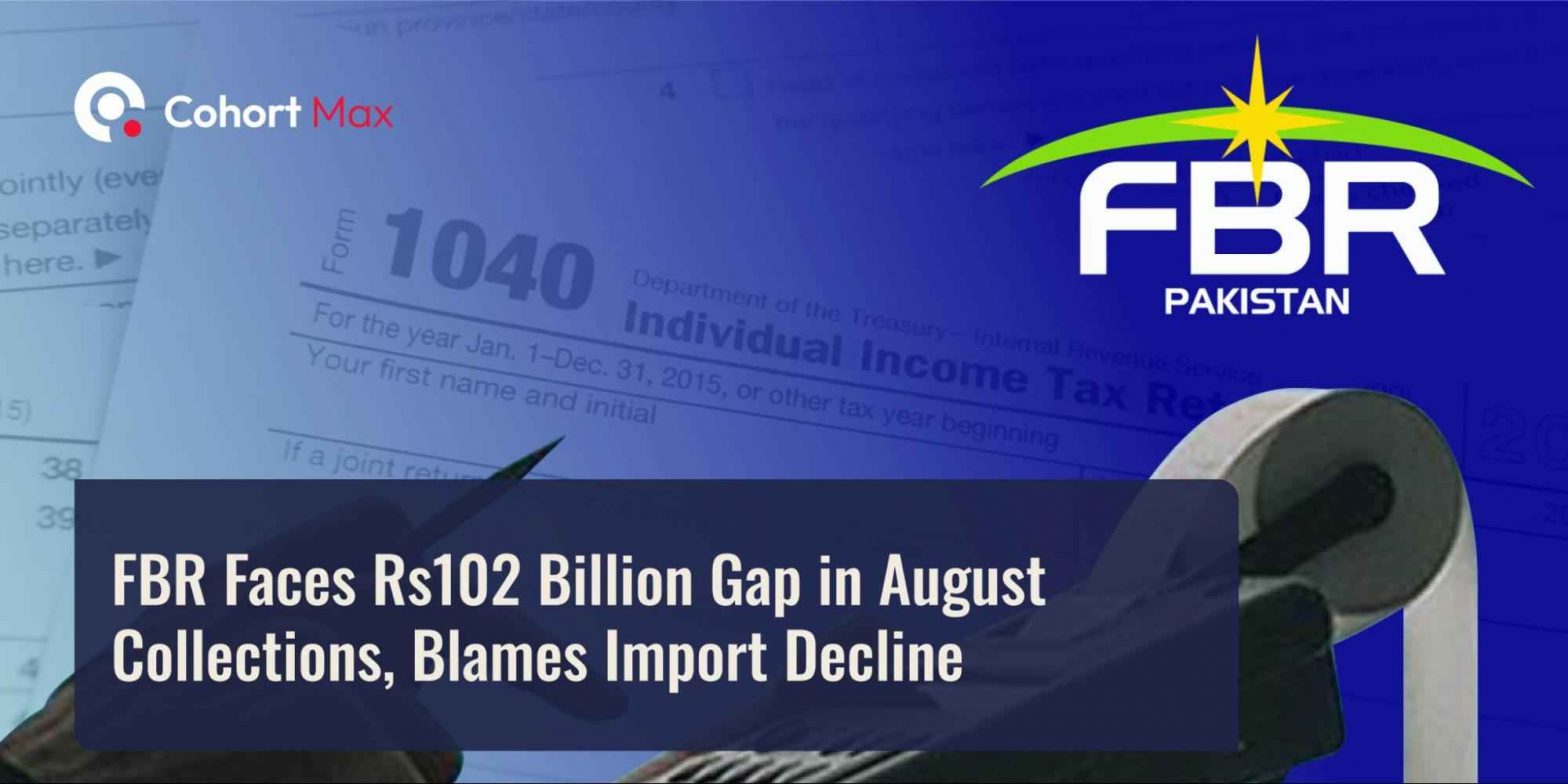FBR Faces Rs 102 Billion Gap in August Collections, Blames Import Decline
| Despite collecting advance payments, the Federal Board of Revenue (FBR) has fallen short of its August tax collection target by Rs102 billion. The FBR now blames a reduction in imports for this significant shortfall, which may lead to a mini-budget. |
The FBR explained the causes of the revenue deficit in a statement that was made public on Sunday. In light of the assertion, “A cumulative growth of almost 35% has been achieved in the collection of domestic taxes—on the import side, the momentum could not be maintained due to continued compression in imports”. The FBR highlighted that imports in August 2024 dropped by 2.2% in US dollar terms compared to last year, with a 7% decline in the value of imports in Pakistani Rupees.
Impact of Missed Targets
Despite imposing a record Rs1.8 trillion in new taxes, the FBR failed to meet its tax collection goals. This shortfall raises concerns about a potential mini-budget, which could affect imports, incomes, and the fertilizer sector.
| Click Here for more informations: Bitcoin experienced a brief surge, reaching $70,000, before falling back. The cryptocurrency‘s volatility continues to be a key characteristic as it fluctuates in value. |
August Collection Details
The FBR was given a target of Rs898 billion for August but only managed to collect Rs796 billion, even after taking advance payments from major cities like Karachi, Lahore, and Islamabad. This left a gap of Rs102 billion. The amount collected would have been about Rs. 765 billion if these developments hadn’t occurred. The FBR collected Rs1.456 trillion in the first two months of the fiscal year, falling short of the IMF-set target of Rs1.554 trillion by Rs98 billion.
Refunds and Tax Increases
In order to alleviate the liquidity concerns of exporters, the FBR also reported that it had disbursed Rs132 billion in refunds over the last two months, a 44% increase. Despite meeting its revenue target in July, the government has introduced several new taxes, including a maximum income tax rate of 39% for salaried individuals, a 50% tax rate for business owners, and various sales taxes on everyday items and imports.
Challenges Ahead
For the first quarter of the fiscal year (July-September), the IMF has set a tax collection target of Rs2.652 trillion for Pakistan, with Rs1.22 trillion required in September alone. Despite the poor performance in August, the FBR remains hopeful of achieving its quarterly target, expecting an economic turnaround in September due to government interventions and a lower policy rate.
Income and Sales Tax Collection
Due mostly to increased bank earnings and contributions from salaried workers, the FBR collected Rs616 billion in income tax in the first two months of the fiscal year, which is Rs156 billion or 26% more than the same period last year. Sales tax collections reached Rs572 billion, an increase of Rs99 billion or 21% from the previous year, but still missed the target by Rs38 billion.
Excise Duty and Customs Duty
Federal excise duty collections amounted to Rs96 billion, an increase of Rs16 billion or 19% over the previous year, but the target was missed by Rs39 billion. Customs duty revenue increased to Rs172 billion, up Rs6 billion or 4%, but it was Rs56 billion below the two-month target. The cumulative growth in tax collection over the first two months was only 21%, which is half of the rate needed to meet the annual target.
The FBR noted that imports of high-duty items, such as vehicles, home appliances, and various consumer goods, have significantly decreased, altering the import mix and affecting Customs duties and other taxes collected at the import stage.
More Related Articles:
BISE Lahore Board Result 2024 | Key Dates and Latest Updated Announcements
The Ultimate Guide to MDCAT 2024 Dates, Syllabus and Registration Details







